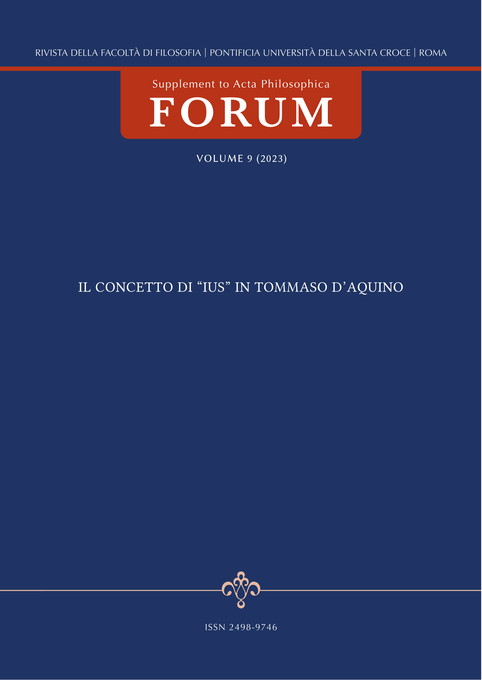Subjective Ius, Casuistry, and Christendom
The Moral-Theological and Ecclesio-Juridical Significance of Francisco de Vitoria’s Rearticulation of Ius in Early Modern Political-Economic Contexts
DOI:
https://doi.org/10.17421/2498-9746-09-07Keywords:
Vitoria, Ius, Divisio rerum, Christendom, Ecclesiology, Ius gentiumAbstract
This paper explores two points concerning Francisco de Vitoria’s rearticulation of ius and ius gentium in early modernity, specifically in the context of the Conquest of the New World. First, recognizing the insufficiency of objective ius and the hierocratic paradigm to explain both the divisio rerum and its consequences and the increasing incongruence between Church and State, Vitoria articulates subjective ius. Formed through the heuristic of pura natura, subjective ius is the faculty to execute contingent, contractual actions, accounting for consequences of the divisio rerum. Second, Vitoria posits a complex moral casuistry for theologians to normatively determine the justice of contingent actions, expanding the Church’s juridic authority over consciences for the end of Christendom’s unity. Thus, Vitoria’s subjective ius has a dyadic purpose: it legitimizes the divisio rerum and is the basis for reassertion of the Church’s spiritual power to maintain the unity of Christendom through the prescription of justice.



